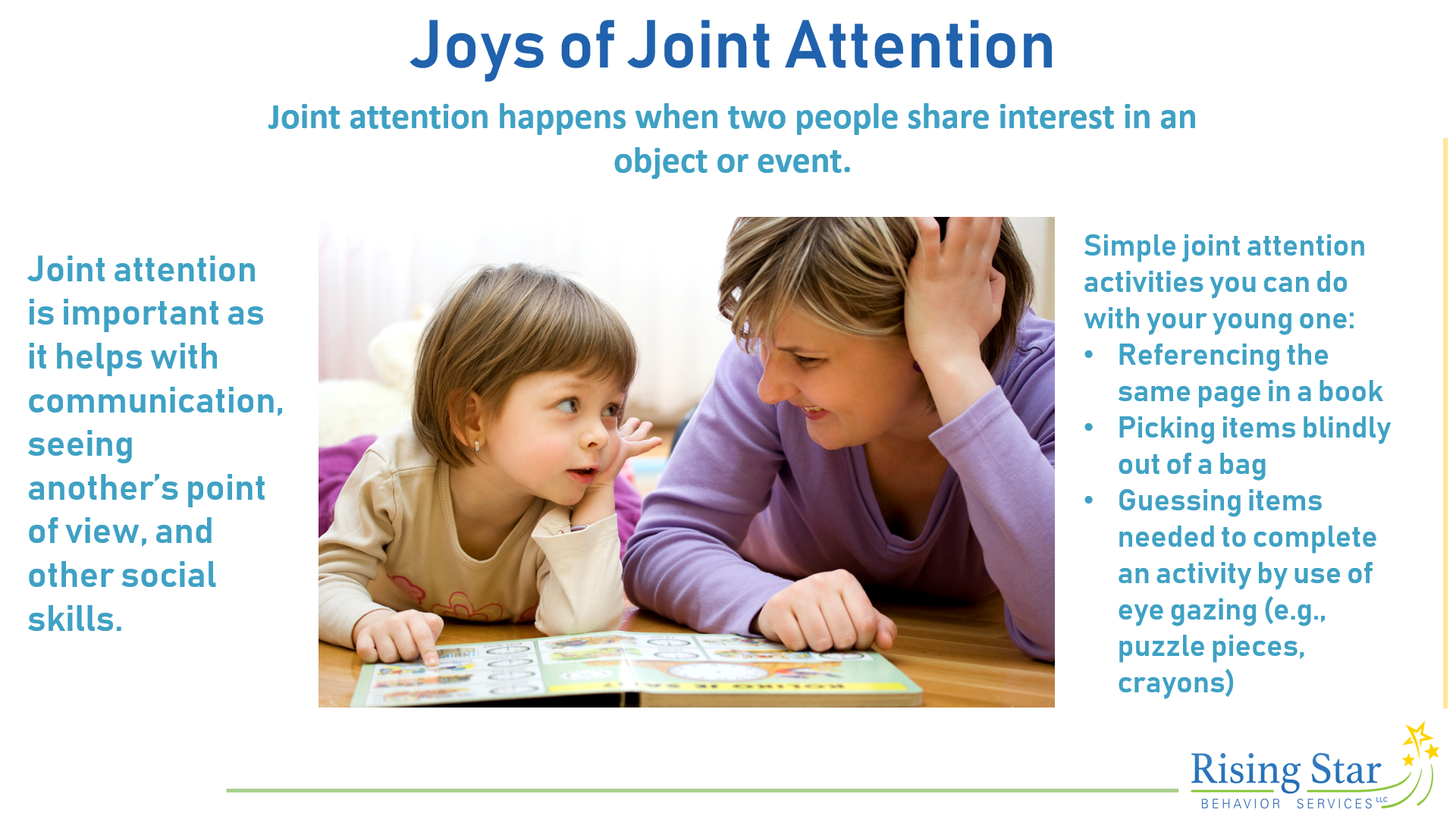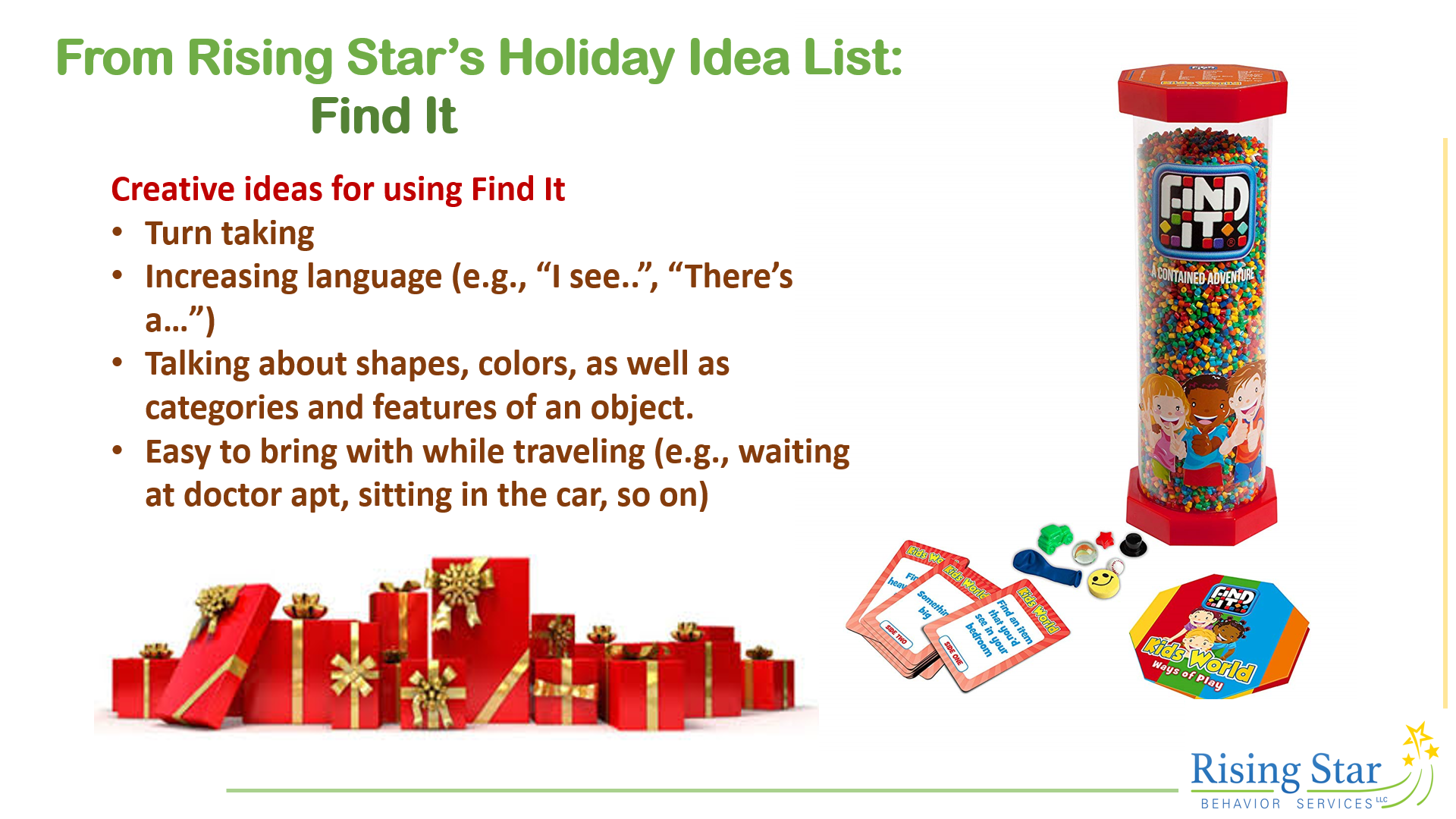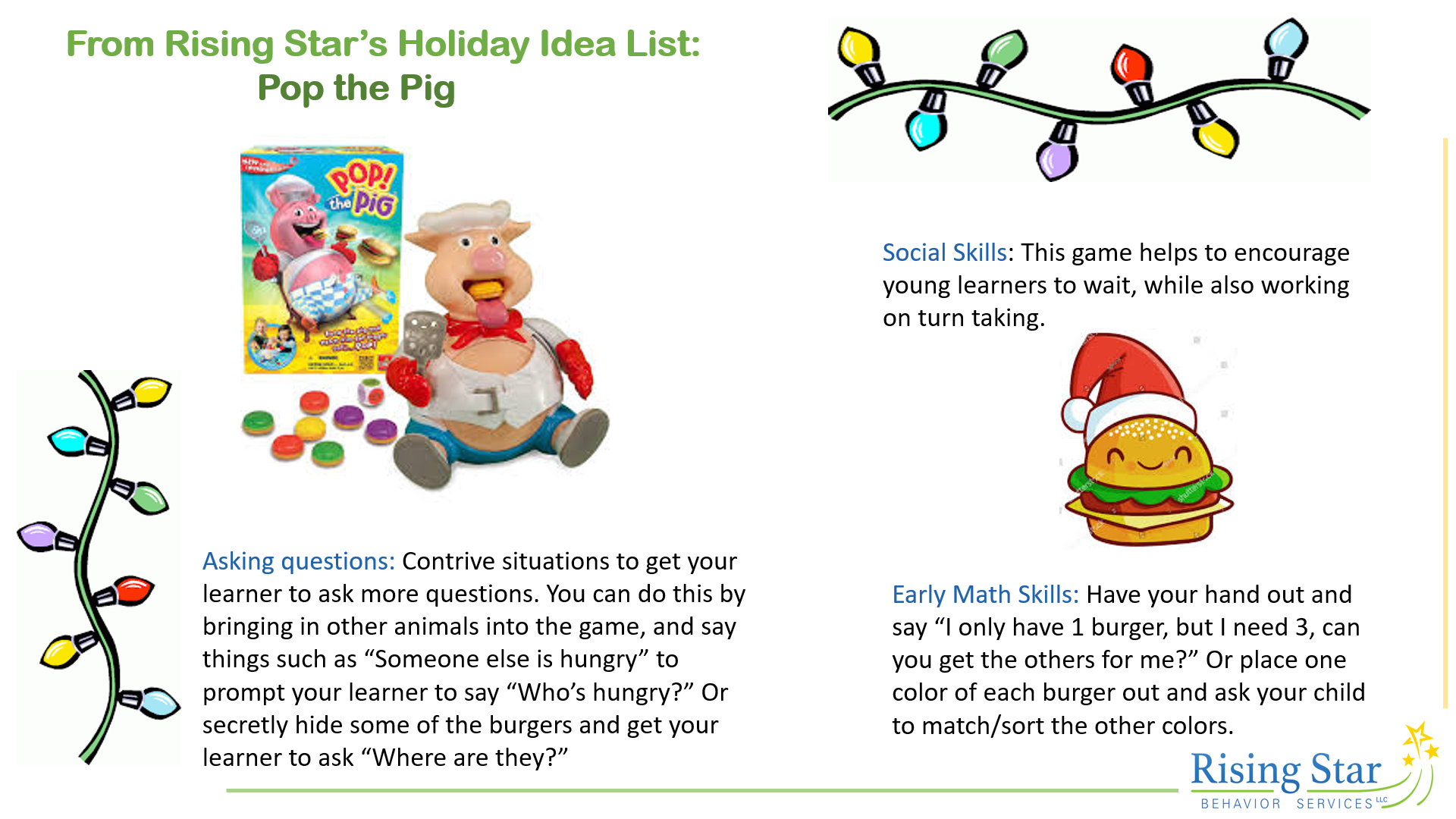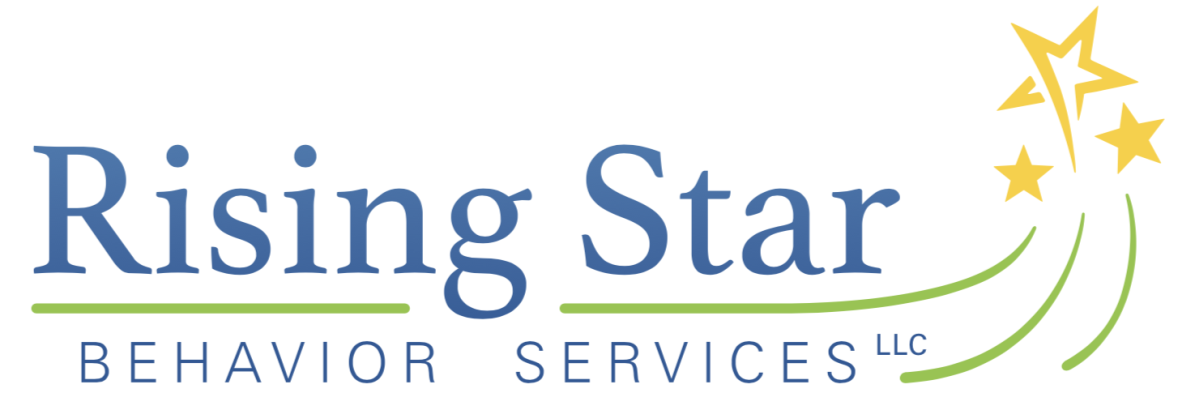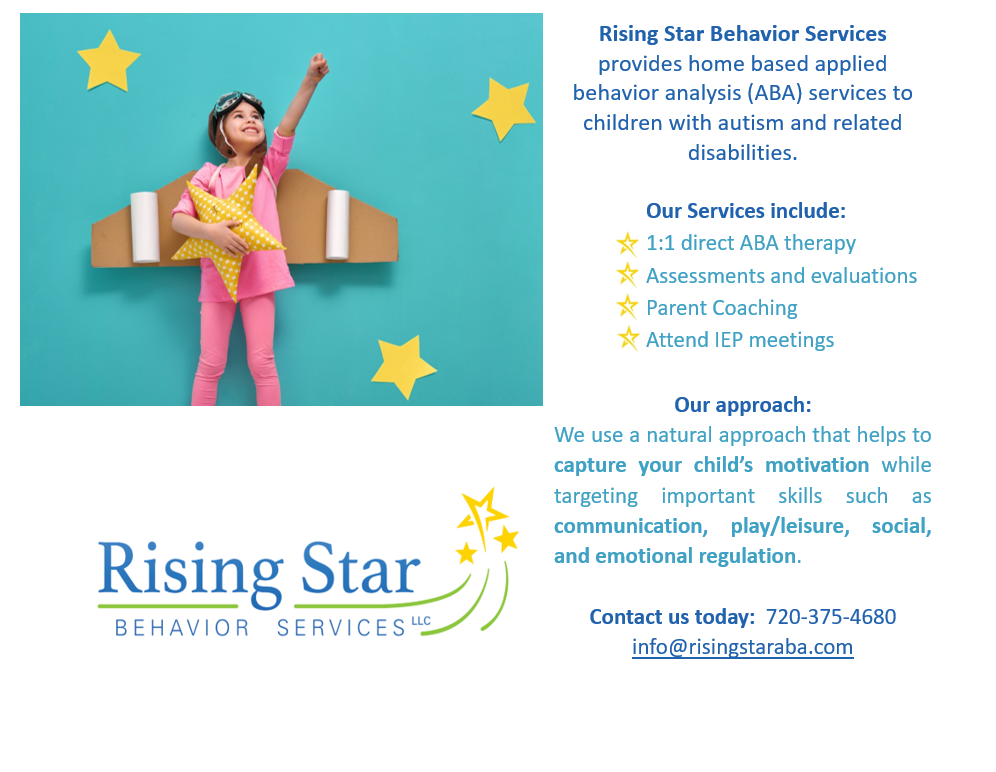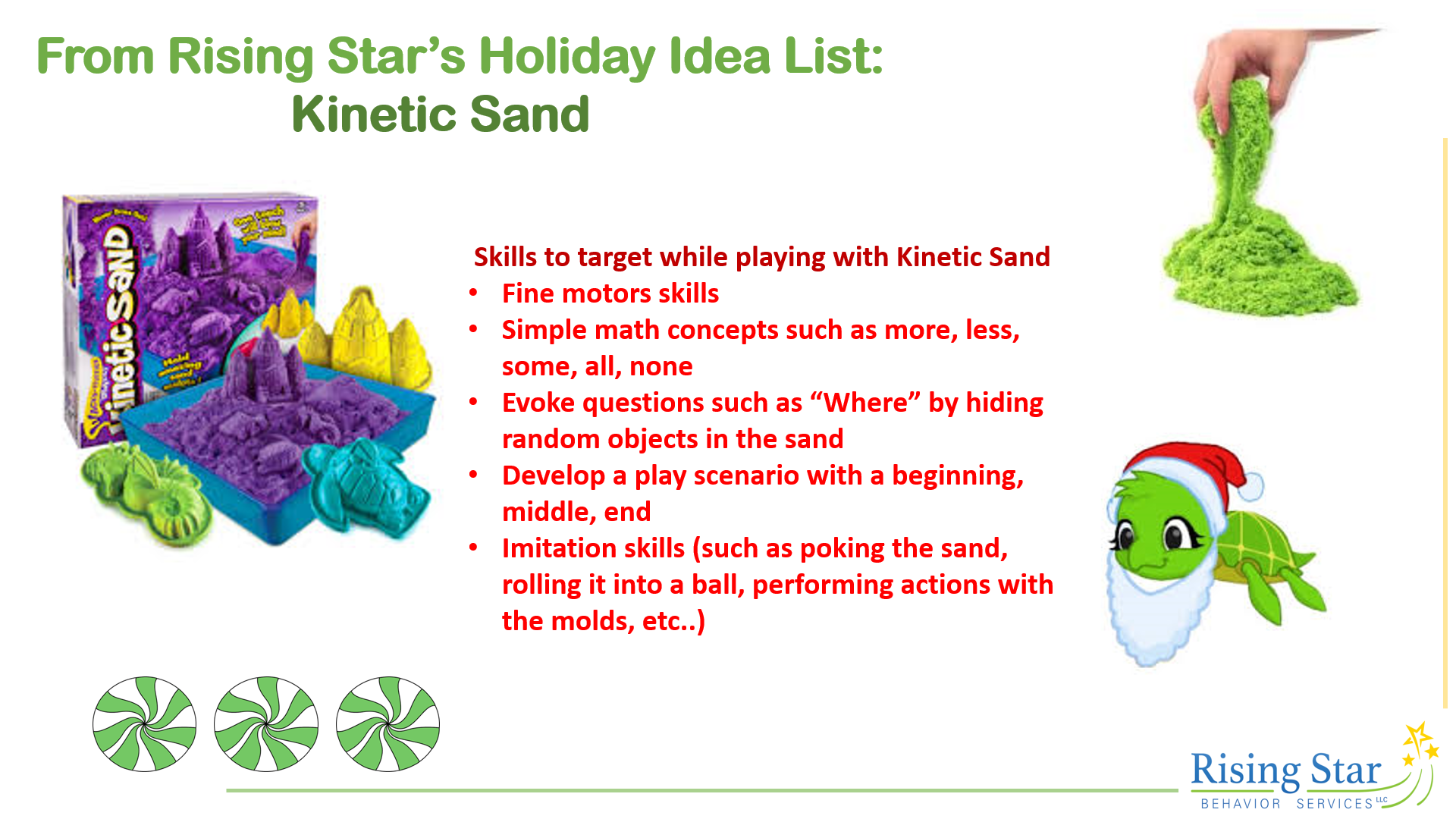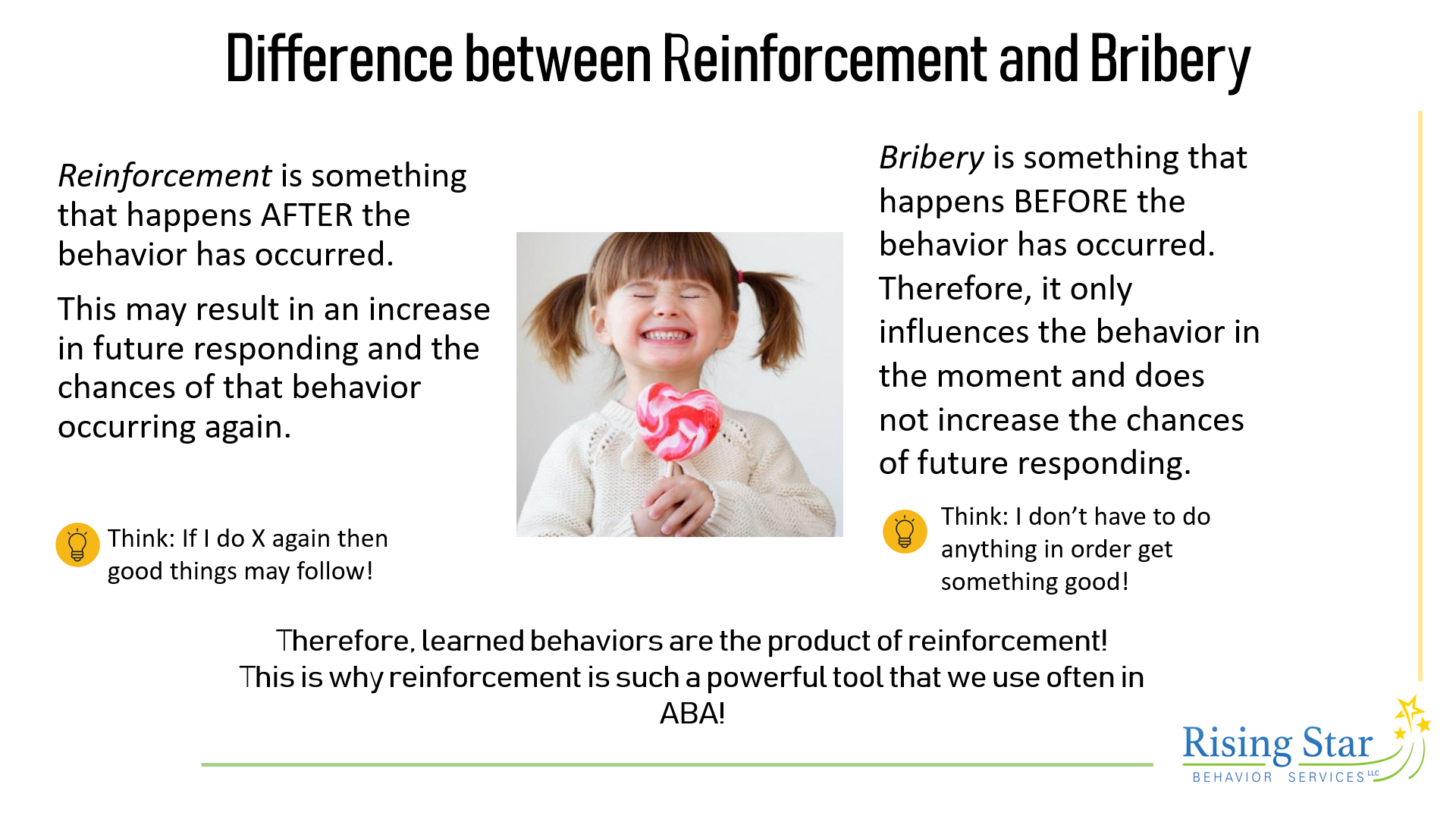Rising Star ABA -Premack Principle
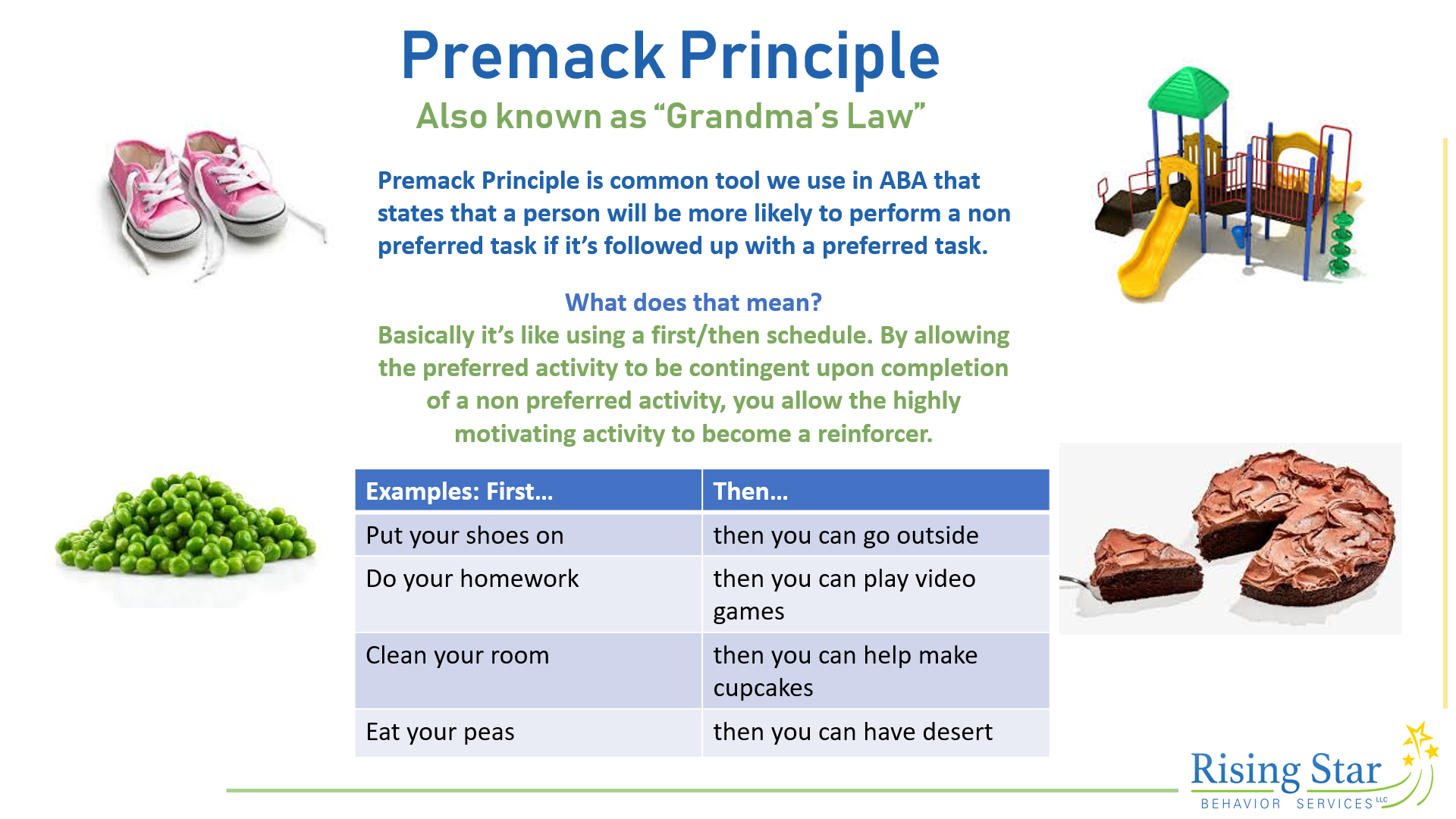 Premack Principle is a common tool we use in Applied Behavior Analysis (ABA). It’s a principle that states a person will be more likely to engage in a non preferred task if it’s followed up with a preferred task. Basically, by offering a “first/then” schedule, a person may perform a low probability task (i.e., something they are not interested in) if it’s completion is contingent upon being able to engage in a high probability task (i.e., something they are interested in).
Premack Principle is a common tool we use in Applied Behavior Analysis (ABA). It’s a principle that states a person will be more likely to engage in a non preferred task if it’s followed up with a preferred task. Basically, by offering a “first/then” schedule, a person may perform a low probability task (i.e., something they are not interested in) if it’s completion is contingent upon being able to engage in a high probability task (i.e., something they are interested in).
For this reason, Premack Principle is often referred to as “Grandma’s Rule”. This is because Grandmas are really good at reminding their grand kids, for instance, that they can’t have their deserts if they don’t finish their vegetables! In other words, grandma is able to increase the chances of their grand kids finishing their vegetables if she makes cake available afterwards. What do you think would happen if she offered cake first? That’s right, you wouldn’t expect their grand kid to eat all of their peas!
Of course, this doesn’t work just for eating deserts, there are many different applications of the Premack Principle. For instance, your child has a hard time collecting their things and getting their shoes on before leaving the house. If you know you’re going to go to a place your kid enjoys (i.e., the park, a certain store, so on) then you’re kid may be more likely to get their shoes on if they were told “Get your shoes on, then we’ll be able to go to the park”. You can also use this tool by trying to get your child to clean up their room. If you just ask them to do it, there’s a chance they may take a long time, or not actually follow through and finish cleaning up. However, if you knew you wanted to make cupcakes as a family later that day, you may tell them “Hey, after you clean your room, we can make some cupcakes”, which may motivate them more to complete their task. The same applies to being able to watch TV, or have access to screen time, after homework is completed.
One thing to note is that it is very important that you follow through with your requests. For instance, if you tell your child “First clean your room, and then you can watch Netflix”, but you allow your child to watch Netflix, for whatever reason, before they’ve finished, then there’s a good chance their room wont get cleaned. And there’s also a chance that in the future your child knows that in order it access a preferred activity, they don’t always have to follow through with your requests (i.e., non preferred activities).
This also applies if you tell your child “First do your homework, and then we can read books together”, assuming your child loves reading books with you. However, when they’ve finished their homework you tell them “Oh, wow I didn’t realize how late it was, maybe we’ll read a book tomorrow instead” (i.e., you’re not following through), then your child may not trust you in the future and may be less likely to complete those non preferred activities when you ask them.
If you would like to know more about the Premack Principle, be sure to send our clinical director, Star London, at Rising Star Behavior Services a message (starlondon@risingstaraba.com). Our company provides in home applied behavior analysis, or ABA, to children with autism and ADHD. Currently, we are serving Boulder and North Denver counties and surrounding areas in Colorado.
